Types of culture in Nigeria: Interesting details about Nigerian people
Did you know there are over 500 dialects in Nigeria? The country is the most populated in Africa. Its people come from multiple ethnic communities, meaning there are different types of culture in Nigeria. Some cultures are considered major because they have a high population, while others are minor.
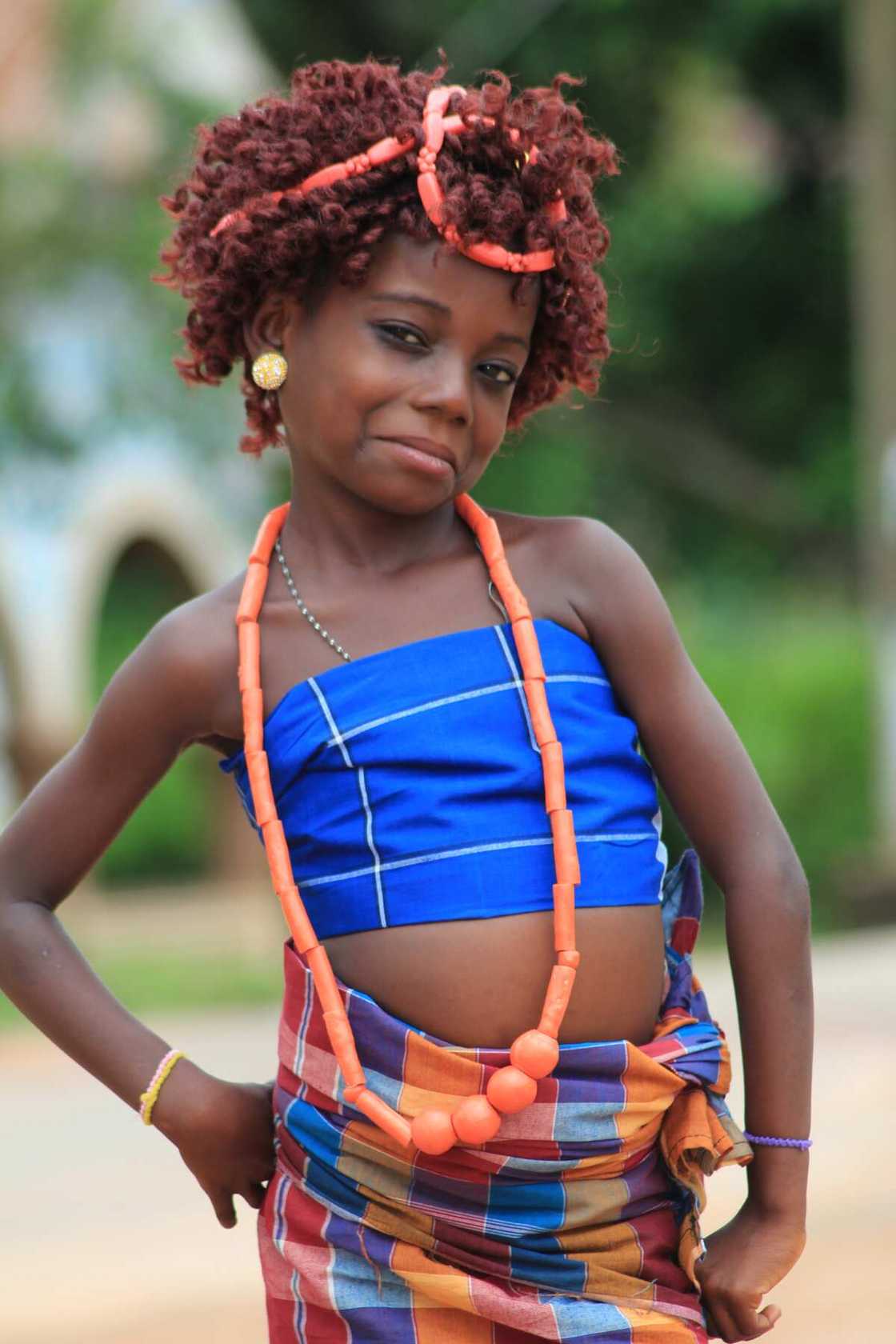
Source: Getty Images
Nigeria is known for its culturally diverse people. Nigerians are proud of their ethnic communities and are known for their flashy dressing and spicy food. Discover the different types of culture in Nigeria today.
Types of culture in Nigeria you should know
Exploring all the ethnic communities in the country is quite challenging because there are over 500 spoken dialects, each with its people and history. Nigerians are broadly classified into three main ethnic groups, namely Yoruba, Hausa and Igbo.
Nigerian culture is rich because each community has unique traditions. Below is an exploration of various ethnic groups in Nigeria and their culture.
PAY ATTENTION: Join Legit.ng Telegram channel! Never miss important updates!
Hausa
There are different cultures in Nigeria, and one of the most common is Hausa. Hausa is the largest ethnic group in the country, and its people, who speak the Hausa language, make up about a fifth of the country's population.
There are over 20 million Hausa people in modern-day Nigeria. They are concentrated mainly in the northwestern part of the nation. This region is mostly semi-arid grassland or savanna. It has several cities surrounded by farming communities.
Religion
A large percentage of Hausa people are Muslims. They believe in Allah and Muhammad as his prophet. Children attend Madrasa classes to learn their religion.
Rites of passage
A week after birth, each child is given a name following the Islamic naming traditions. Boys are usually circumcised at about seven, but no special rite is associated with this.
When young men and women mature, they get engaged. Marriage ceremonies take several days. Male representatives of the bride's and the groom's families sign the marriage contract according to Islamic law, usually at the mosque. When a person dies, they are buried as per the Islamic traditions.
Dressing
This community has an elaborate dress style. Many wear large, flowing gowns with elaborate embroidery around the neck. The attire is called gare or babban gida. They also wear colourful embroidered caps called huluna.
On the other hand, Hausa women wear a wrap-around robe made of colourful cloth with a matching blouse, head tie, and shawl.
Food
The staple foods in this community include sorghum, millet, rice, and maize. These grains are normally ground into flour for a variety of foods. Soups are commonly consumed. Most are made with tomatoes, onions, vegetables, and spices. Beans, peanuts, meats, and milk are the primary sources of proteins.
Family life and education
Hausa people are reserved and respectful. In rural setups, people live in large households called gidaje. Farming and trading are the main economic activities.
Education begins at about six, and children attend Koranic schools. Music and art are important in everyday life, and children often participate in dances.
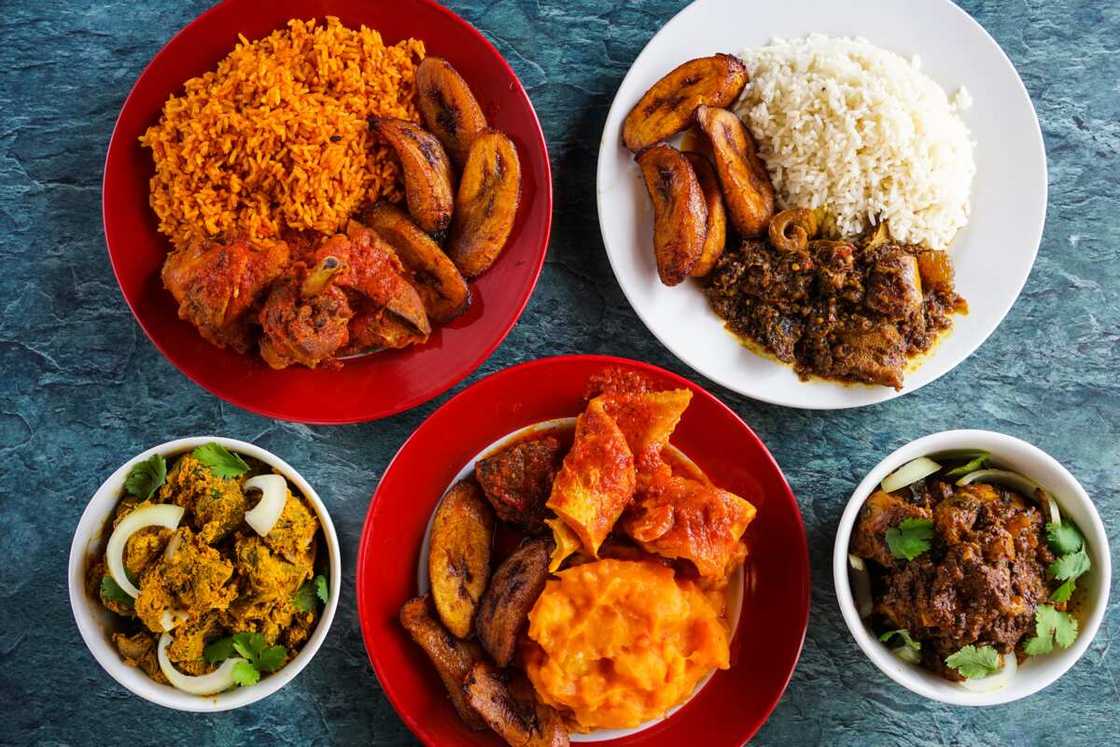
Source: Getty Images
Ibo/ Igbo
Igbo people speak the Igbo language and primarily occupy the southeastern part of the country. By the turn of the 21st century, Igbo people numbered over 20 million.
Religion
Igbo is a major culture in Nigeria. The Igbo believe in a supreme god who watches over his creatures from a distance and seldom interferes in the affairs of human beings. As the creator of everything, he is called Chukwu Abiama. The community believes in minor gods.
Rites of passage
In this community, boys are circumcised at eight days old. During this time, the umbilical cord is buried at the foot of a tree selected by the child's mother. A name-giving ceremony that involves feasting and drinking is also held.
The marriage process is pretty long and may take several years. The steps involved are asking for the young woman's consent, negotiating through a middleman, testing the bride's character, and paying dowry.
After death, one's remains are clothed in the finest garments and placed on a stool in a sitting posture. People pay their last respects before they are buried, usually within 24 hours.
Dressing
The Igbo traditional dress is a danshiki or a long, loose-fitting top. For everyday wear, men wear a cotton wrap, shirt, and sandals. For formal events, they wear a long embroidered shirt over a dressy wrap, shoes, and a hat. Women wear wraps for both informal and formal occasions.
Food
The staple food of the Igbo is yams. Other commonly consumed starches are cassava, taro root, rice, maize and plantains. A typical meal includes starch and a soup or stew, prepared with vegetables to which pieces of fish, chicken, beef, or goat meat are added.
Family life and education
Traditional Igbo men were polygamous and could marry as many wives as they could sustain. This changed after the introduction of Christianity. The community has embraced modern education.
Music is a key cultural component. The community has a traditional instrument called ubaw-akwala, and another stringed instrument called ugene.
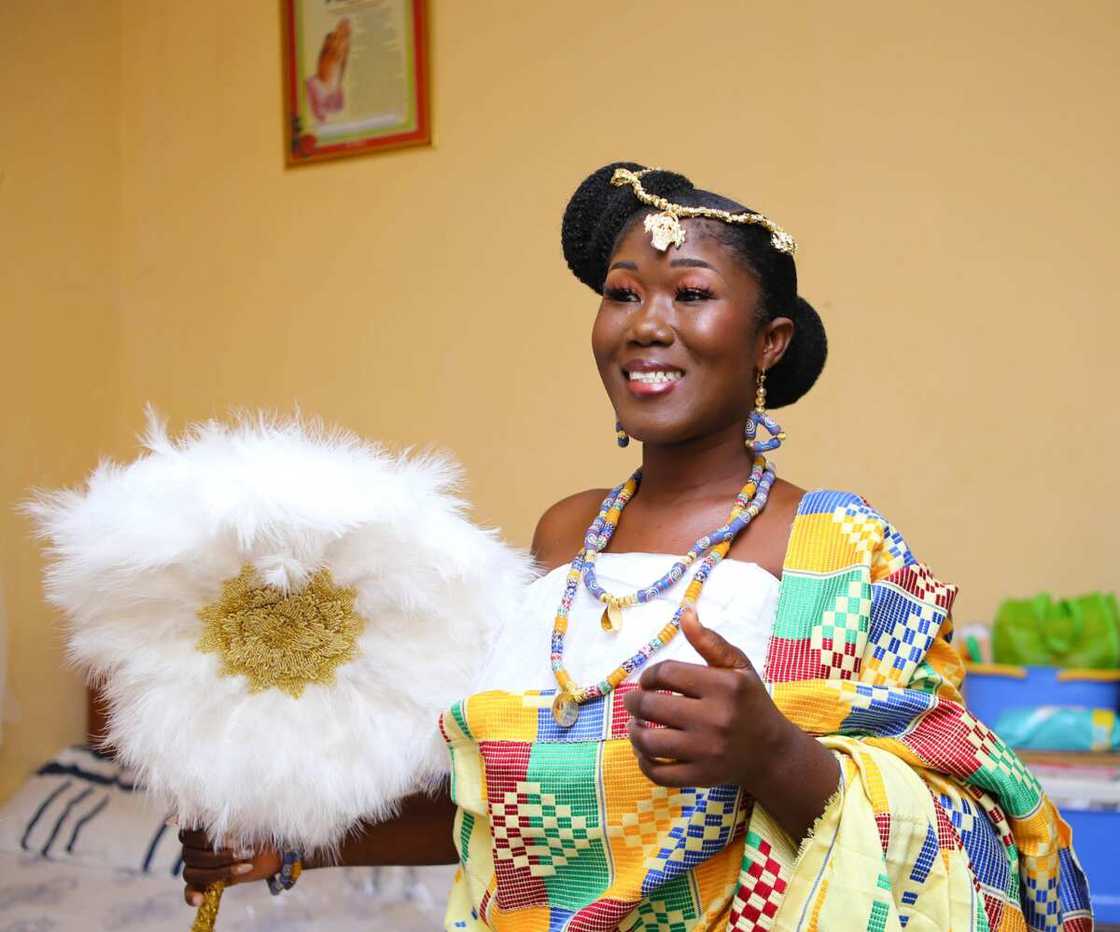
Source: UGC
Yoruba
Yoruba, one of the largest ethnic groups of Nigeria. People from this community are concentrated in the southwestern part of the nation and speak the Yoruba language.
Religion
About 20% of people from this community still practice the traditional Yoruba religion. This religion holds that there is one supreme being and hundreds of minor deities called orisha. Those who practice other religions are divided almost evenly between Muslims and Christians.
Rites of passage
A newborn is normally sprinkled with water to make it cry, and no word is spoken until the infant cries. At birth, no one younger than the mother should be present. The baby is then taken to the backyard, where the umbilical cord is cut. The placenta is buried in the backyard.
A couple of days after birth, a naming ceremony is held. Marriages are arranged, and wedding ceremonies take several days.
Burials are normally performed by adult men who are not close relatives of the deceased but belong to their clan. The grave is dug into the floor of the room where the deceased lived.
Dressing
Traditional Yoruba outfits are made of block-printed fabrics with geometric designs. They are colourful and elaborate.
Food
The staples in the Yoruba diet are starchy tubers, grains, and plantains. These are mostly eaten with wild and cultivated fruits and vegetables, meat, and fish. One of the most popular foods is fufu.
Family life and education
The Yoruba oral tradition includes tongue twisters, praise poems, prose narratives, riddles, and proverbs. Traditional Yoruba men are polygamous and live in large homesteads. The community has embraced modern education.
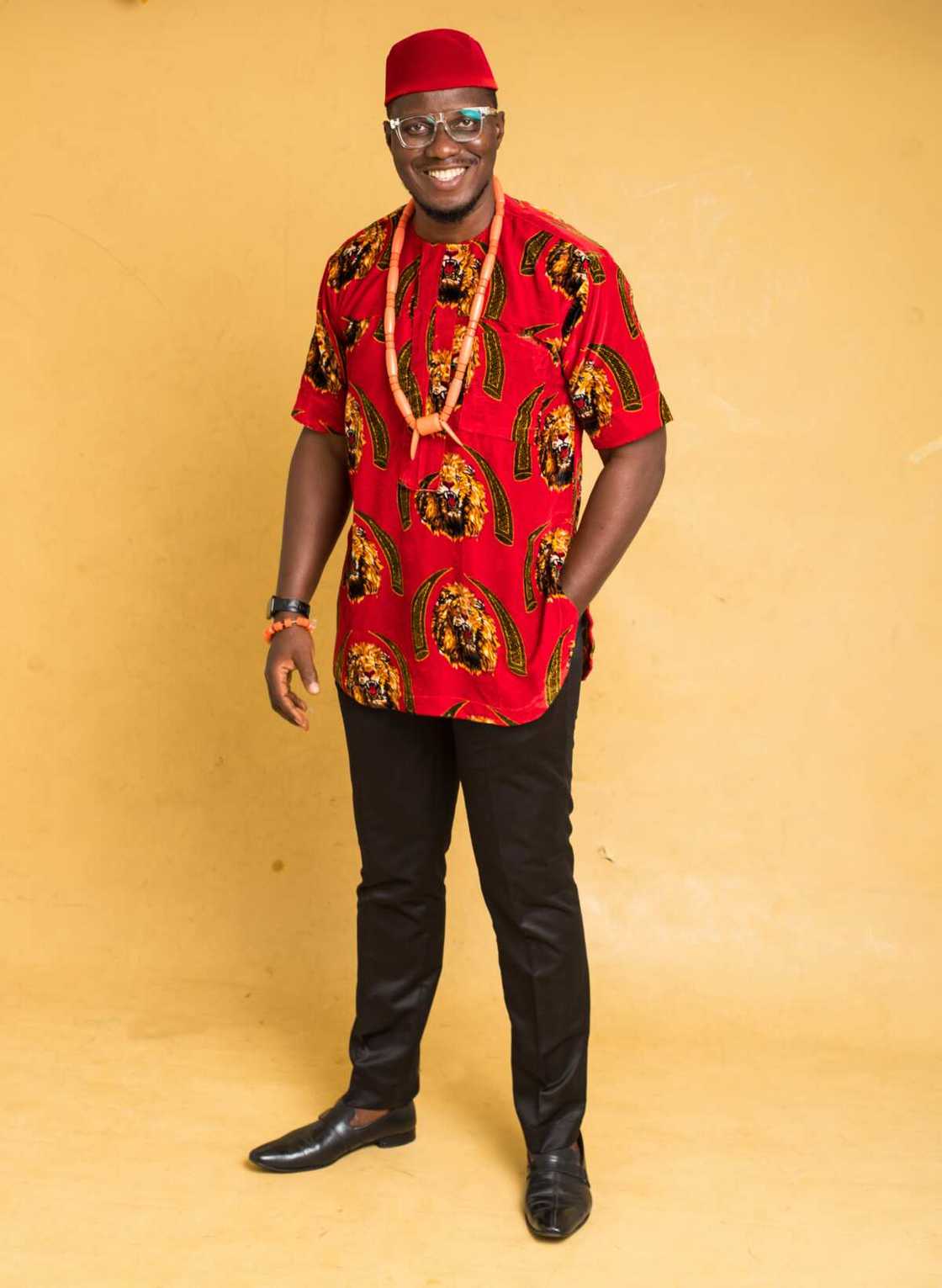
Source: Getty Images
Fulani/ Peul/ Fulbe/ Fulfulde
The language of the Fulani is known as Fulfulde. Its people are scattered throughout many parts of Africa, including Nigeria, Mali, Guinea, Senegal, and Niger.
Religion
This community is primarily Muslim. Members follow all Islamic teachings and principles.
Rites of passage
Shortly after birth, a naming ceremony is held according to Islamic law and practice. Boys undergo circumcision at around seven.
Girls are usually betrothed in marriage during their early to mid-teens. Boys remain young and handsome or sukaa'be until twenty. They are allowed time to herd or obtain a farm before marriage. Families sign a marriage contract under Islam.
Dressing
The community follows the Islamic dress code, which prescribes modesty.
Food
The Fulani diet includes milk products, gruel called gari, and a heavy porridge called nyiiri. Millet, sorghum, and corn are staple grains.
Family life
The Fulani people are guided by a code of ethics called Pulaaku. It encourages semteende (modesty), munyal (patience), and hakkiilo (common sense). The Fulani live in small, temporary camps. They have a nomadic lifestyle, and polygamy is common.
Edo/ Bini
The Bini or Edo people are concentrated in Edo State. Some are spread across the Delta, Ondo, and Rivers states of Nigeria, and they speak a language called Edo.
Religion
Edo people are religious and believe in the existence of two worlds, i.e. the visible world called agbon and the spiritual world called erinmwin.
The religion is quite philosophical. They believe the creator of these worlds is God Almighty or Osanobua. They also believe in the series of fourteen reincarnations. After the fourteenth reincarnation, each soul tells Osanubua his or her life plan to define their destiny.
Food
Soups are the staple meal in this community. The most common soups are melon or okra soups cooked with bush meat or fish. Pounded yam and rice are the main starches.
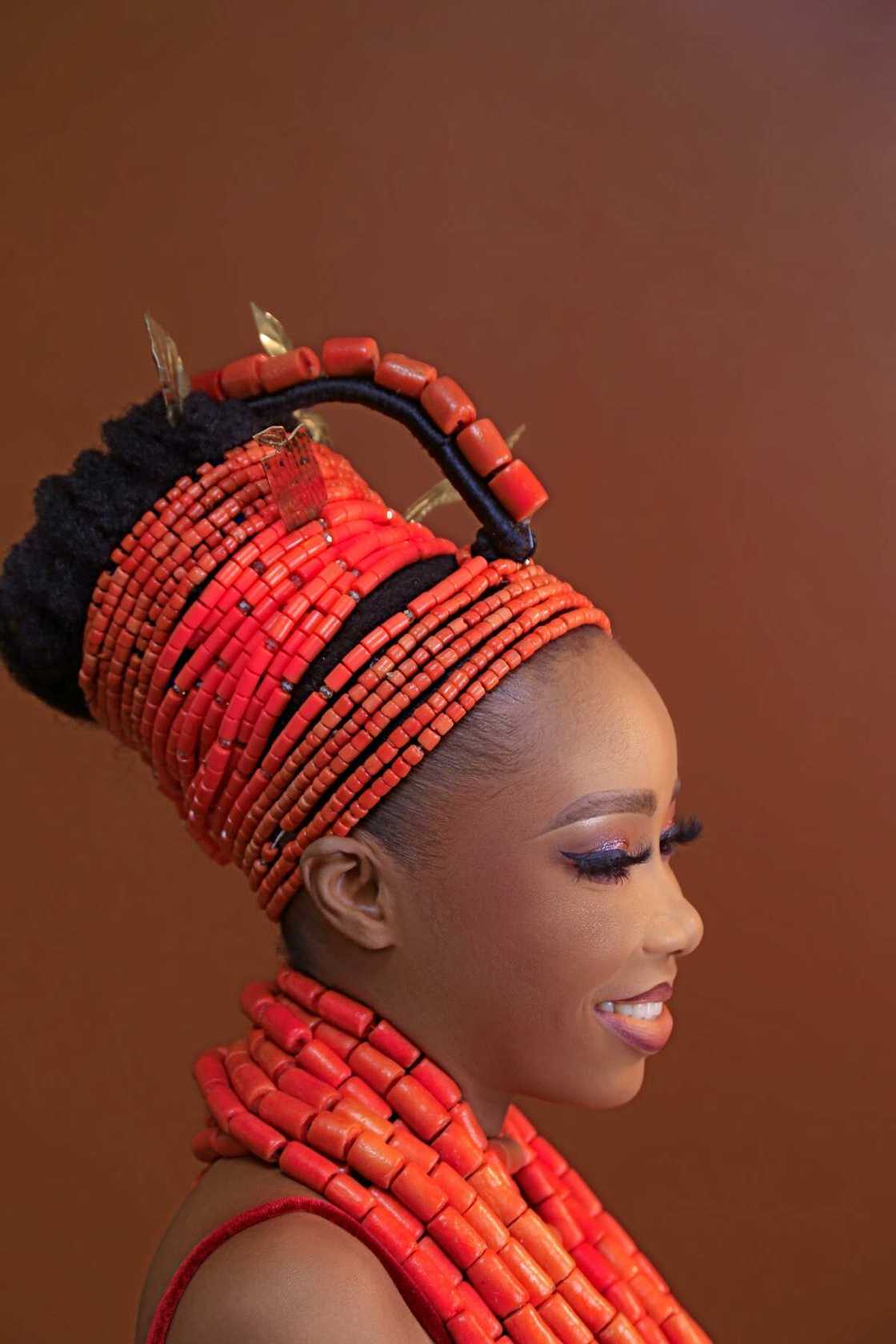
Source: UGC
Efik-Ibibio
Efik-Ibibio culture has a significant influence on the Southern Part of Nigeria. The representatives of this culture speak their native language and English.
The culture is associated with the lion, which is the symbol of this culture. There is a secret society called the Ekpe (lion) that protects the culture.
This society has an elaborate system of symbols called Nsibidi transferred to the contemporary generation from ancient knowledge. Most of the symbols are taught at school to preserve the Ibibio culture.
Mythology
The community believes in a Supreme Being called Abassi and His wife, Atai. Atai is the mediator between Abassi and human beings. It is believed that Atai convinced Abassi to allow two humans of opposite genders to live on earth but forbade them to work or reproduce.
The rules were set so that the Efik people would not surpass Abassi in wisdom or strength. The two disobeyed, and Abassi killed them and cursed human beings to experience chaos and death on earth.
Food
People from this community often eat soups. Some common soups are Afañg, Edikang Ikong, pepper, Ukwoho, Atama, and Eritan. Many recipes are made of vegetables.
How many cultures are in Nigeria?
There are over 250 ethnic cultures and over 500 spoken languages in the country. Some communities have preserved their traditions better than others.
What is Nigeria known for?
The country is known for being the most populous black nation and one of the biggest oil producers. It is also known for its large film industry and love for fashion.
Does Nigeria have one culture?
No, the country has multiple cultures. It has over 250 ethnic communities.
What are the 3 types of culture in Nigeria?
The three main ethnic groups are Yoruba, Hausa and Igbo. There are many other minor ethnic communities in the country.
How many cultural groups are in Nigeria?
There are over 250 cultural or ethnic groups in the country. Among them, the three largest are Igbo, Yoruba, and Hausa.
What are the major cultural groups in Nigeria?
Igbo, Yoruba, and Hausa are the three major cultural groups in the country. This is because they have the highest population.
There are numerous types of culture in Nigeria in 2022. These communities have unique religious beliefs and customs.
READ ALSO: Nigerian Air Force ranks and their salary structure in 2022
Legit.ng recently published a list of the official Nigerian Air Force ranks and their salaries in 2022. The Nigerian Air Force is responsible for peacekeeping, search, and rescue missions in the country's airspace.
It uses helicopters, airplanes, and other aerial machines to achieve its mission. Like other jobs, there are various Nigerian Air Force ranks, including junior and senior levels.
Source: Legit.ng

Cyprine Apindi (Lifestyle writer) Cyprine Apindi is a content creator and educator with over six years of experience. She holds a Diploma in Mass Communication and a Bachelor’s degree in Nutrition and Dietetics from Kenyatta University. Cyprine joined Briefly.co.za in mid-2021, covering multiple topics, including finance, entertainment, sports, and lifestyle. In 2023, she finished the AFP course on Digital Investigation Techniques. She received the 2023 Writer of the Year Award. In 2024, she completed the Google News Initiative course. Email: cyprineapindi@gmail.com

Adrianna Simwa (Lifestyle writer) Adrianna Simwa is a content writer at Legit.ng where she has worked since mid-2022. She has written for many periodicals on a variety of subjects, including news, celebrities, and lifestyle, for more than three years. She has worked for The Hoth, The Standard Group and Triple P Media. Adrianna graduated from Nairobi University with a Bachelor of Fine Arts (BFA) in 2020. In 2023, Simwa finished the AFP course on Digital Investigation Techniques. You can reach her through her email: adriannasimwa@gmail.com











